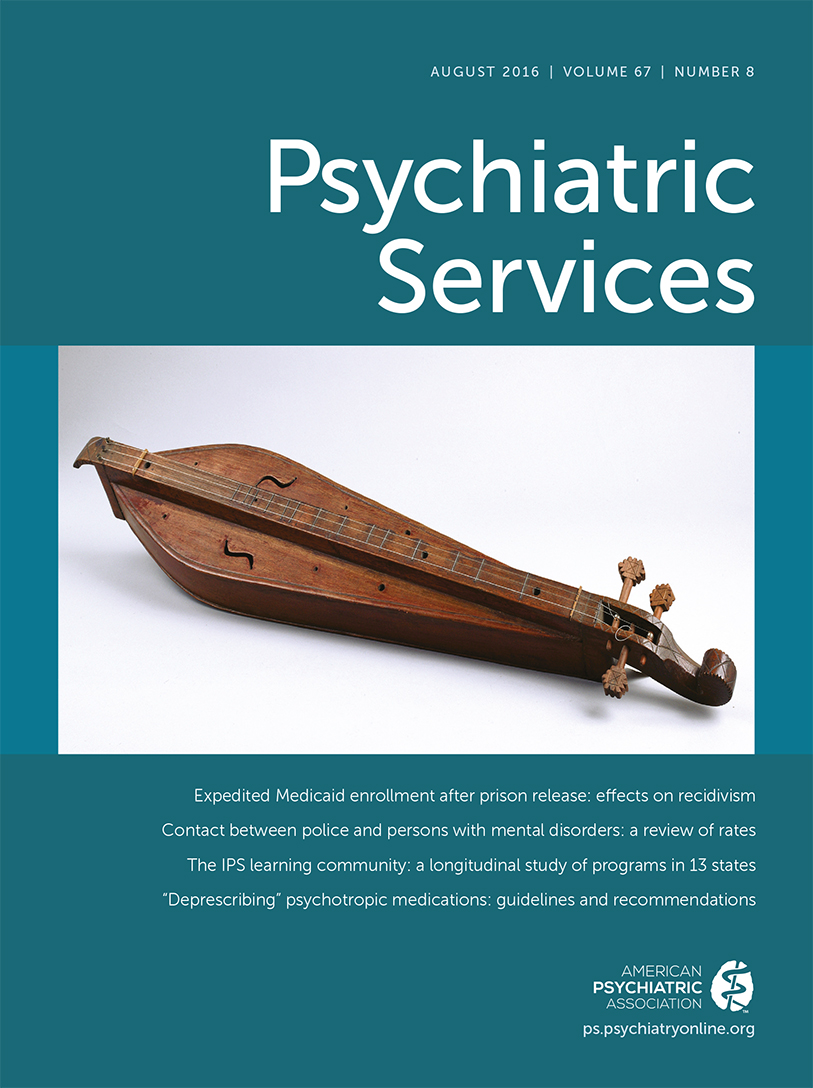Public Psychiatry’s Accomplishments
TO THE EDITOR: After decades of experience, Dr. Becker (1) evaluated his career in public psychiatry in a tone of defeat and some despair. As career veterans ourselves in public psychiatry, we recognize many of the political, economic, and, sometimes, professional obstacles he encountered.
Although sympathetic to his experience of periodic discouragement, we do not share his sense of disillusionment. In particular, it is unfortunate to see him hold up a Texas hospital-based empowerment program that he designed in 1964 and a community-based vocational rehabilitation program in New Haven that closed in 1971 as evidence that public psychiatry has declined since that time. We appreciate that work in the community is complex—both politically and economically—and that not all initiatives have been successful. But we assert that tremendous progress has been made in recent years. More important, we wish to counter his pessimistic view of public practice and assure young professionals entering the field of the deep gratification to be had in serving people with serious mental illnesses or substance use disorders and to let them know that there are multiple reasons for hope about future development.
In the past 53 years, much has been accomplished in public psychiatry, including system development in the community, the recovery movement, person-centered care, psychosocial rehabilitation programs, implementation of evidence-based practices, supportive housing programs, integration with primary care and addiction medicine, jail diversion, early intervention for psychosis, and more. It is an exciting field of psychiatric practice that is now attracting strong candidates to the Yale Department of Psychiatry residency program and faculty. Also, each year, highly talented, optimistic, advanced professionals apply for Public Psychiatry Fellowships at the Connecticut Mental Health Center (now celebrating its 50th year as an academic community mental health center) and the VA Connecticut Healthcare System, also associated with the Yale Department of Psychiatry. Recently, 74 faculty members in the Yale Department of Psychiatry contributed to the Yale Textbook of Public Psychiatry (2) to enhance education in this domain. Surely all this is cause for hope, a modicum of optimism for the future, and some celebration.
There is also reason for optimism about new models of practice and funding streams for public psychiatry under 2008 parity legislation and the Affordable Care Act (ACA). The recently enacted legislation for development of certified community behavioral health centers can breathe new life into these centers. Behavioral health homes under the ACA promise to improve integration of behavioral health and primary care. Senator Murphy of Connecticut with Senator Cassidy of Louisiana proposed new legislation in 2015 for reinvigorating behavioral health care. All these developments are sources of optimism for the people we serve and the young professionals who are now entering pubic psychiatry to serve them. Echoing Fritz Redlich, M.D., the first director of the Connecticut Mental Center in New Haven, who was quoted by Dr. Becker, we encourage our young colleagues to “reach for the stars” while keeping a keen eye on scientific, professional, social, political, and economic development—and surely they will touch the minaret.
1 : Perhaps I touched the minaret, or how patient-centered care remains a dream. Psychiatric Services 67:375–377, 2016Link, Google Scholar
2 Jacobs SC, Steiner JL (eds): Yale Textbook of Public Psychiatry. New York, Oxford University Press, 2016Crossref, Google Scholar



